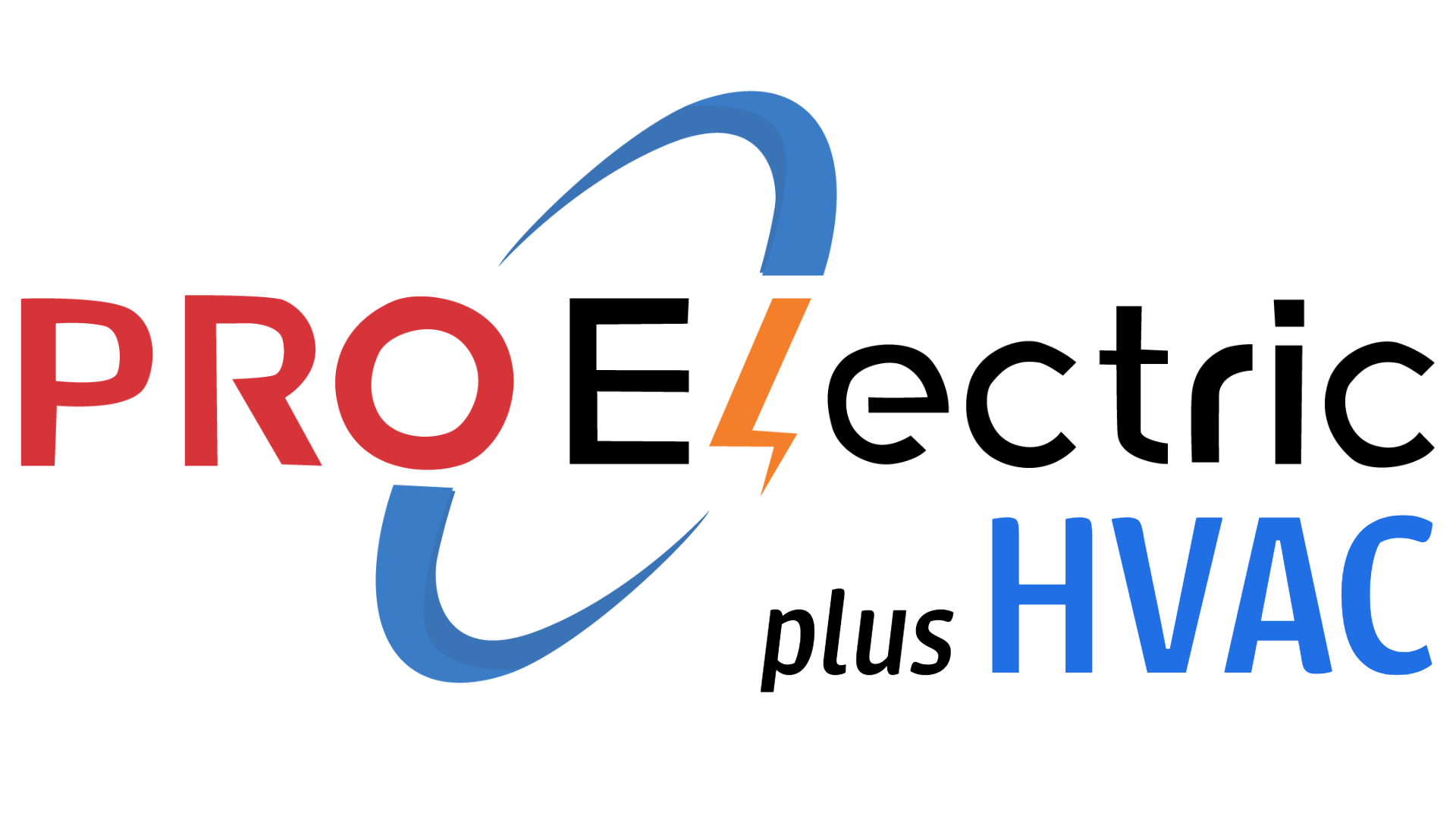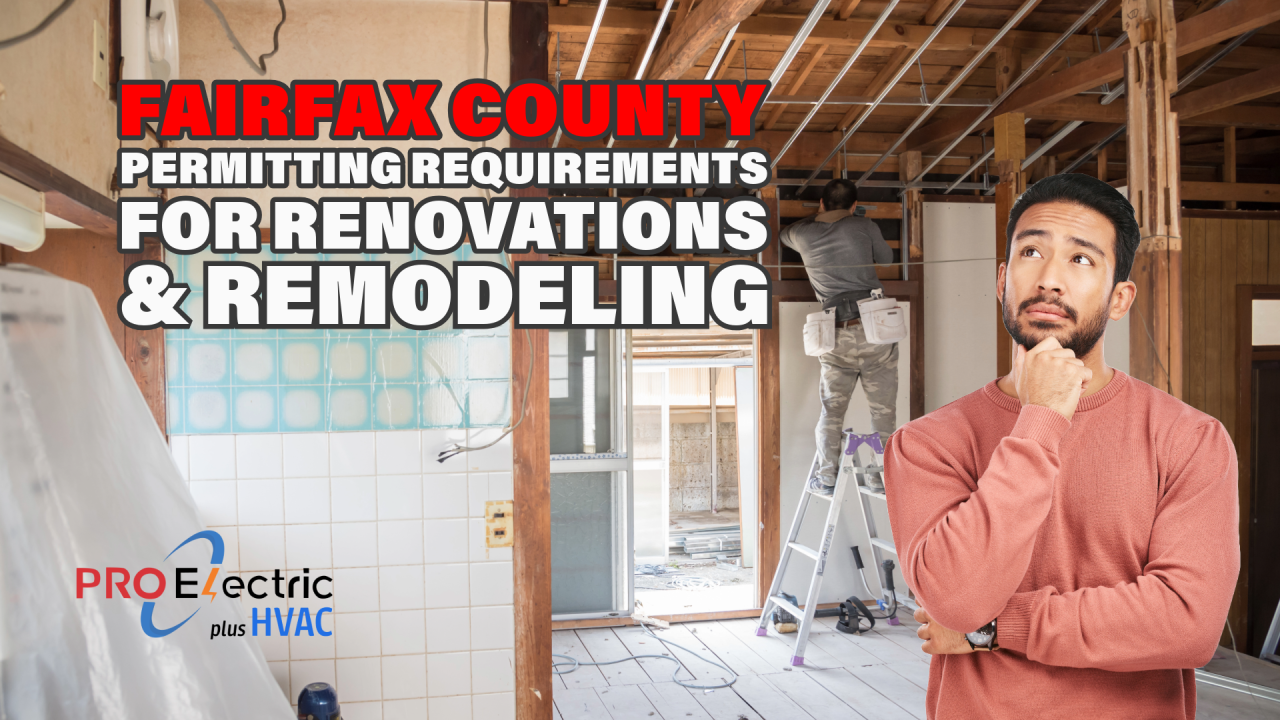If you’re a homeowner in Fairfax County and are considering renovating or remodeling, including electrical work, you should understand that the county requires permits.
Obtaining the appropriate permits enables your project to meet community building regulations, safety requirements, and the importance of your property.
When Does A Permit Need to Be Purchased?
A residential electrical permit is usually needed in Fairfax County for the following:
- New Installations: New electric circuits, outlets, lighting fixtures, or electric panels.
- Alterations/Upgrades: Include upgrading electric service panels, rewiring existing circuits, or installing backup generators.
- Renovations & Remodeling: Any remodeling project which moves or adds electrical wiring, outlets, or fixtures.
- Appliance Installations: Hardwired devices such as built-in ovens, utensils & HVAC systems.
- Outdoor Electric Work: Installing exterior lights, pool or hot tub wiring, or landscape lighting systems.
Exemptions
Several minor electrical repairs do not need a permit (for instance)
- Replacing devices like switches, outlets, or light fixtures without altering the circuit.
- Like-for-like replacement or repair of broken electrical wires.
Note: Even when no permit is needed, all work should meet NEC and Fairfax County codes.
The Permit Application Process
Make Your Plans
- Detailed Drawings: Create electrical plans describing the scope of work, including circuit layouts, load calculations, and panel schedules.
- Compliance Check: Make plans conform to the NEC and local amendments adopted by Fairfax County.
Submit Your Application
- Online Portal: Fairfax County lets you submit an application and upload plans online.
- Fee for Application: Pay the correct fees, which are generally proportional to the scope and value of the electrical work.
Plan Review
- County Review: A plan reviewer will check your submission for compliance with construction codes and regulations.
- Revisions: Make any requested modifications to your plans and resubmit if needed.
Permit Issuance
- Approval: Approval of the work will lead to your electrical permit.
- Display Permit: Keep the permit on-site and accessible during the project.
Who Can Perform the Work?
- Licensed Electricians: Electrical work should be done by a licensed Virginia contractor.
- Homeowner Exception: You can do electrical work on your primary residence as a homeowner, provided that you’re competent and have the permits.
- Caution: Electrical work is risky. If you aren’t experienced, hire a licensed professional.
Inspection Requirements
Scheduling Inspections
- Request Inspections: Schedule inspections at different project phases, including rough-in and final inspections.
- Online or Phone: Call and even go online for an inspection via the county’s system.
Inspection Stages
- Rough-In Inspection: Conducted after wiring is put in before walls are closed.
- Final Inspection: Performed after all electrical work and devices are installed.
Passing Inspections
- Code Compliance: Ensure all work adheres to the NEC and local codes.
- Access: Give safe access to all places where electrical work has been completed.
Correction of Violations
- Deficiencies: If the inspector notices some code violations, you repair them and plan a re-inspection.
Penalties for Non-Compliance
- Stop Work Orders: Unauthorized work could create a work stoppage order.
- Fines & Legal Action: Non-compliance can lead to legal action or fines.
- Insurance – Issues: Unpermitted work can cause insurance claims or coverage.
Benefits of Getting A Permit
- Safety Assurance: Ensures electrical work meets safety requirements to avoid fires or electrocution.
- Legal Compliance: Keeps you compliant with local regulations and laws.
- Property Value: Proper permits and inspections hold or enhance property value.
- Insurance Protection: Prevents denial of insurance for unpermitted work.
Other Considerations
- Other Permits: Depending on your project, you might also need building, plumbing, or mechanical permits.
- Historic Districts: Some properties in historic districts have extra requirements or limitations.
- Environmental Regulations: Know any ecological regulations that impact your project.
Contact Information
For specific questions or help:
Fairfax County Department of Land Development Services,.
Website: Fairfax County Land Development Services
Phone: 703-222-0801
Email: Contact Form.
Navigating Fairfax County’s permit requirements for electrical remodeling and renovations is crucial for a lawful and successful project.
By acquiring the correct permits and following all rules, you safeguard your investment, defend your house, and help your local community.
Always receive the most correct info for your project from Fairfax County officials or an authorized professional.



